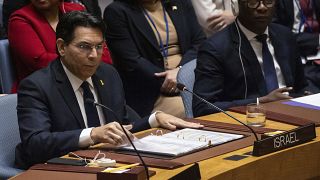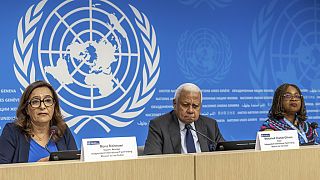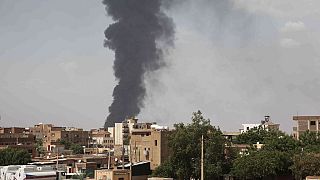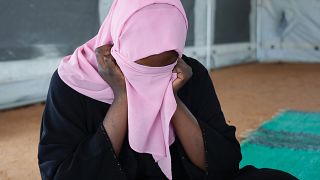Sudan
The exodus of civilians has accelerated with more than 700,000 people displaced by the war in Sudan, twice as many as a week ago, the United Nations announced Tuesday, with no end in sight after more than three weeks of fighting.
Looting and fighting continued for the 25th consecutive day in Khartoum. In Port Sudan, a coastal town 850 kilometers east of the capital, hundreds of Beja tribesmen demonstrated, demanding weapons to fight alongside the army.
"The Beja are ready to be armed," said Mahmoud al-Bichari, one of the organizers of the demonstration, as the crowd chanted "no to negotiations.
Since April 15, the war has pitted army chief General Abdel Fattah al-Burhane against General Mohamed Hamdane Daglo, commander of the paramilitary Rapid Support Forces (RSF), who became rivals after leading the October 2021 putsch together.
"With the war continuing and insecurity taking hold, there is a growing risk that people will start arming themselves locally or that the army will try to form a militia to counter the RSF," Sudanese analyst Magdi Gizouli of the Rift Valley Institute told AFP.
- 700,000 displaced -
The conflict has already left more than 750 people dead and 5,000 injured.
Nearly 150,000 refugees have fled to neighboring countries, while the number of internally displaced people in Sudan has risen to more than 700,000, according to the UN, more than double the 340,000 recorded on Tuesday.
Many have fled Khartoum, a city of five million people, where those who remain are now living barricaded in their homes.
Without water or electricity, with food stocks almost exhausted and with less and less money, they are surviving in the sweltering heat thanks to solidarity networks between neighbors and relatives.
On Tuesday, fighting took place in several neighborhoods, according to witnesses.
At the start of the conflict, the army claimed that "astronomical sums" had been stolen during fighting around a central bank branch.
On Tuesday, the federation of Sudanese banks acknowledged that "looting" had affected "some banks in Khartoum", but claimed that the savings of the Sudanese people were "fully preserved".
The telephone and internet networks have come and gone, depending on the efforts of the telecommunications companies, which are struggling to find fuel to run their generators.
Almost no hospitals are functioning and most humanitarian supplies have been bombed or looted. The same is true in Darfur, in the west of the country, bordering Chad.
Before the war, one in three Sudanese suffered from hunger. If the war continues, up to 2.5 million more people will go hungry every day, according to the UN.
As for the "pre-discussions" on a temporary cease-fire to be held by both sides in Jeddah, Saudi Arabia, there seems to be no progress.
UN humanitarian chief Martin Griffiths, who arrived in Jeddah on Sunday and has already left, has offered both sides a commitment to "ensure the passage of humanitarian aid" via a declaration of principle, UN deputy spokesman Farhan Haq said Tuesday.
- Impact on neighboring countries -
For Kholood Khair, an expert on Sudan, "these talks are more of a decoy than a real platform for finding solutions.
Alongside the Americans and the Saudis, the African Union, which suspended Sudan in 2021, and the Igad, the East African regional bloc to which the country belongs, are trying to organize discussions under the aegis of the President of South Sudan, Salva Kiir.
The latter received an emissary from General Burhane in Juba on Monday.
The conflict "threatens the supply of food and basic goods to South Sudan as well as its oil exports which pass through Port Sudan", a vital outlet on the Red Sea for this landlocked country, said Tuesday Hanna Serwaa Tetteh, the UN special envoy for the Horn of Africa.
The UN has warned that of the 800,000 South Sudanese refugees settled in Sudan, 200,000 could make their way back.
"A challenge," Tetteh warned, for South Sudan, where "two-thirds of the population is already in need of humanitarian assistance."
On Tuesday, Egyptian diplomatic chief Sameh Shukri visited Mr. Kiir, after denouncing the previous day "the human tragedy" of the conflict and its "direct impact on neighboring countries."













01:07
Pro-palestinian demonstrators protest in Rio de Janeiro as G20 summit unfolds
02:09
Russia vetoes UN resolution calling for immediate cease-fire in Sudan
01:00
Maori MPs stage haka protest against treaty bill
01:07
Sudan keeps key aid crossing from Chad open to keep humanitarian aid flowing
01:58
Climate adaption: Unfulfilled pledges mean “lost lives and denied development” – UN chief
00:58
Baku: Protesters call for Gaza ceasefire during opening of COP29